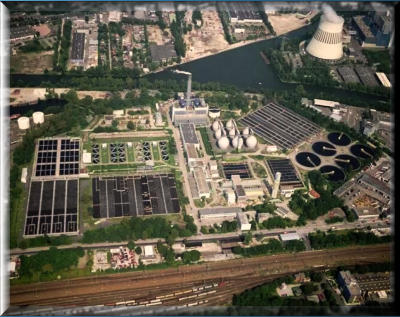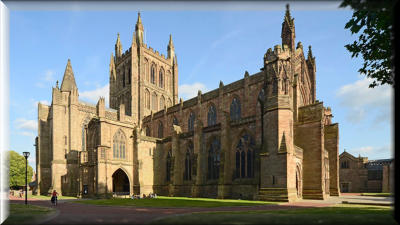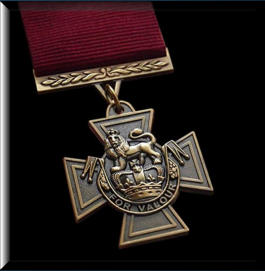


© Palatine Lodge - 1893 - 2023 - In se ipso totus teres -
I thought you might like to know what happened to some of the prisoners after the war
ended. In the 1950's, after 2 wars, curiously, Spandau was twinned with Luton. Ruhleben was restored to
its original use as a trotting course but it never regained its former popularity and barely managed to
survive through the 1920's and 30's. In the early 1960's, the buildings which had been home to so many
men were demolished and the site was re developed as a sewage disposal plant and refuse dump, which
it still is today.
Remember the physicist and his Bunsen burner? He was called James Chadwick and had been in
Germany because he was working with Hans Geiger. He was later knighted and received a Nobel prize for
discovering the existence of the neutron which, in turn of course, led to the atomic bomb.
W.Bro Percy Hull, who wrote to Grand Lodge about the plight of the masonic prisoners and, later,
organised the address that was sent to the Grand Master for the bi-centenary, was an accomplished
musician and composer and a close friend of Elgar and Vaughan Williams. On Armistice Day, in 1918, he
was appointed organist at Hereford Cathedral where he remained for over 30 years. He was also knighted
- for his services to music - and he occupied the post of Grand Organist for many years.
The meeting, in Batley, of Ruhleben wives and mothers, who voted to collect goods and send
them to the Camp, was proposed by Mrs J.C.Ferguson and seconded by Mrs H.Leach. John Clegg Ferguson
was a master dyer from Batley. He went to Germany where he became Chief Chemist and Head Dyer for
an English owned firm. He was joined there by his apprentice Clifford Leach who was also from Batley. At
the outbreak of the war, they were both interned at Ruhleben and they were both Masons. After the war,
Ferguson's two sons and Clifford Leach all joined Trafalgar Lodge No 971 in Batley. Subsequently, Clifford
Leach's son joined Social Lodge No 62 in Manchester and James Ferguson, who is John Clegg's grandson,
is now a Grand Lodge officer. Jimmy was extremely helpful in the preparation of the evenings event and
he would have been with us except he is organist at St Michael's Lodge in Leeds, which, unfortunately,
also meets on the same night as we do. He did however, he sent hearty greetings and hoped the occasion
was well received.
Most of those who were prisoners in the First World War survived. They suffered considerable hardships and there were, of course, far more masons fighting in the trenches
and at sea and, sadly, many of them never returned to their families and Lodges. The Victoria Cross is the highest gallantry award that British servicemen can achieve and it is always
linked with acts of extreme bravery. Of the 628 VC's that were awarded in the First World War, 64, which is more than 10%, are
known to have gone to Freemasons, a far higher proportion than the number of Masons who were in the Forces. On the 25th April
1915, at Gallipoli, when no fewer than 6 VC's were won by members of the Lancashire Fusiliers, 3 of the recipients were Masons.
The overall percentage may well be higher but some of those who received VC's were very reticent about their
achievements and also, possibly, about their Masonic connections. The proud record continues because, so far, of the total of 1358
VC's that have been won, roughly 10% have been awarded to Masons. Remember the plaque in the Royal Masonic Hospital, that
was installed in memory of three brethren, including Captain C. Fryatt of the s.s. Brussels? He was a Merchant Navy captain who
was briefly sent to Ruhleben after his ship was captured by German destroyers. Early in 1915, Fryatt had twice, successfully
defended his ships against German U-boat attacks. On the second occasion he rammed a submarine to prevent it firing a torpedo.
He was rewarded for his actions by his employers and also by the Admiralty who presented him with a gold watch inscribed
'Presented by the Lords Commissioners of the Admiralty to Charles Algernon Fryatt, Master of the s.s. Brussels in recognition of
the example set by that vessel when attacked by a German submarine on March 28th 1915'
Sadly, this inscription was brought to the attention of the German authorities who used it as an excuse to try Charles Fryatt at a
court martial and subsequently execute him. I suspect, that many older Lodges have buried in their archives records of brethren who returned from the Great War and those who didn't.
The Minutes of Palatine Lodge show that: W Bro Captain Bryson Gunn survived and enjoyed many more years of Masonry in Palatine Lodge. Sadly, Bro Robert Meek and Bro
Douglas Wallace, both 2nd Lieutenants, did not return to us from the war.
A toast to end the evening was given to ‘Absent Brethren’




















